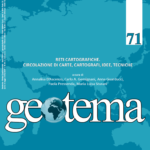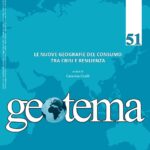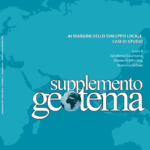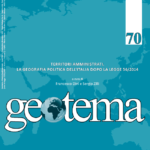Giulia de Spuches
Ça marche. Creare uno spazio collettivo camminando per Palermo
Il contributo analizza due marce resistenti a Palermo riprendendo le tesi sullo spazio pubblico di Goheen (1998). Lo spazio pubblico, nella prima, perde gradatamente importanza e rende i cittadini dei consumatori; nella seconda, continua a essere arena di lotte di gruppi che rivendicano visibilità e riconoscimento. L’articolo analizza il rituale ambulante di Wu Ming 2 e il Gay Pride, due marce capaci di creare spazi collettivi. Nel primo caso, il percorso ha fatto riemergere le tracce dimenticate della storia e le ha legate ai temi del contemporaneo. Nel secondo, l’attenzione alla precarietà dei corpi è stata rivendicata in una Palermo consenziente. Il contraltare di questi «movimenti» si trova nelle politiche istituzionali di pedonalizzazione del centro storico che hanno favorito una profonda trasformazione dello spazio pubblico e prodotto una popolazione passiva e attratta dal consumo.
Abstract: Ça marche. Create a collective space by walking through Palermo
The paper analyses two marches of resistance in Palermo with references to the public space as in Goheen’s (1998) theses. In the first one, the public space gradually loses relevance and presents the citizens as consumers; in the second one, it remains an arena of the fights of those groups that claim to visibility and recognition. The itinerant ritual of Wu Ming 2 and the last Gay Pride in Palermo are the two kinds of march capable of creating collective spaces. In the former case, the itinerary has made the forgotten traces of history resurface and has linked them to our contemporary themes. In the latter, the attention to the precariousness of bodies has been claimed in a consenting Palermo. On the other hand, the institutional politics of pedestrianisation of the historical centre, by supporting a deep transformation of the public space, have produced a population that is passive and lured by consumption.
Résumé: Ça marche. Créer un espace collectif en parcourant Palerme
L’article analyse deux marches résistantes à Palerme et reprend la thèse de Goheen (1998) sur l’espace public. L’espace public, dans la première thèse, perd progressivement de son importance et fait des citoyens consommateurs ; dans la seconde, il continue à être une arène de luttes de groupes qui revendiquent visibilité. L’article analyse le rituel de marche de Wu Ming 2 et de la Gay Pride, deux marches capables de créer des espaces collectifs. Le premier cas a mis en évidence les traces oubliées de l’histoire et les a reliées à des thèmes contemporains. Le second, l’attention sur la précarité des corps a été revendiquée dans une Palerme concernée. La contrepartie de ces « mouvements » se trouve dans les politiques institutionnelles de piétonisation du centre historique qui ont favorisé une profonde transformation de l’espace public et produit une population passive attirée par la consommation.
Parole chiave: camminare, spazio pubblico, Palermo
Keywords: walking, public space, Palermo
Mots-clés: marcher, espace public, Palerme









